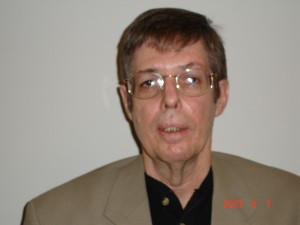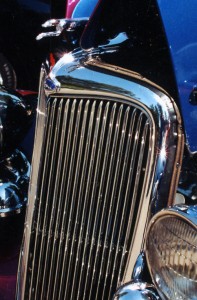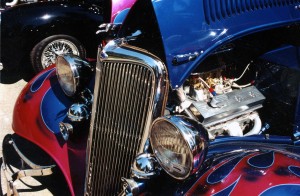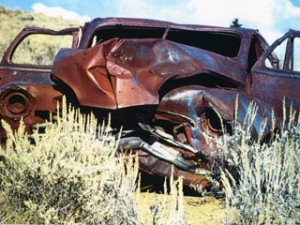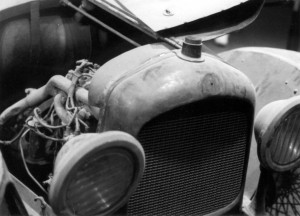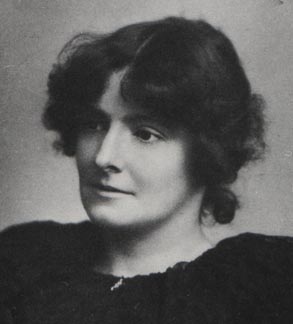BEN & SARAH: A MURDER IN MISSISSIPPI
Writer Jeff Conine began researching and writing Ben & Sarah: A Murder in Mississippi after discovering that one of his students was the sister of once notorious murderer Ben Darras, who is doing life without parole at Parchman Farm, the Mississippi State Penitentiary, for his part in the sensational murderous rampage inspired by the movie “Natural Born Killers.” The case was famous in part because megawriter John Grisham was a friend of the first murder victim in the case who was shot and killed by Ben and his cohort Sarah. Grisham campaigned against Oliver Stone for making the movie that inspired Ben and Sarah to commit copycat murders. Eventually Stone and Time-Warner won the First Amendment case after it dragged on in the Louisana courts. Ben and Sarah’s story was the subject of a recent Discovery Channel investigation. But this is Conine’s story as his alter ego, Caine, journeys to the prison to interview Ben. In a parallel universe, he lives out his own descent into the heart of darkness, an adventure that takes him to The Blues Club Ground Zero that in reality is actor Morgan Freeman’s Club in Clarksdale, close to the prison. Boryanabooks is proud to present these excerpts from Conine’s story. Read more
Great Car Photos By Linda Scott, A Photographer Who Used Real Film To Get These Wonderful Shots
The Memorable Life of Edith Nesbit
A Woman of Passion: The Life of E. Nesbit, 1858-1924 by Julia Briggs (New York: New Amsterdam Books, 1987).
By Leslie Evans
Preeminent Edwardian children’s author, prolific novelist and poet, co-founder of the Fabian socialists, friend of George Bernard Shaw, H. G. Wells, Annie Besant, Lord Dunsany, and Noel Coward, Edith Nesbit was to the world at large a figure of conventional if progressive sensibilities. In the relative privacy of her home she was the Bohemian duchess, chain-smoking mother to five children, two of them secretly by her ever-philandering husband’s live-in mistress, searcher for occult mysteries, lover of George Bernard Shaw – and afterward of an ever-younger string of adoring young men. A mesmerizing contrast of apparent acquiescence in the rigid conventionalities of late Victorian and Edwardian England, and quiet moral revolt against them. Read more
Edendale: Chapter 12
North Alvarado Street on Red Hill
By Phyl M. Noir
Wind rattled the windows of my house and pea sized hail hit the windows and struck the chimes hanging from one of the big eucalyptus trees. The marmalade-colored cat sat on the stairs to the backyard inhaling the scents in her venue: pepper, eucalyptus, ladybugs, succulents with a little water lying in their scooped bellies, skunk, and lemon. The wind blew the cat’s fur into an aureole.
I opened the windows and breathed salty air. Wind drew struggling gulls in a spiral towards rain clouds.
Below the clouds shone the gold-leaf dome of the Ukrainian Orthodox Church. Beyond the dome was Bohemian Hill — one of the Silver Lake hills — and beyond it white letters spelling Hollywood rose above chaparral growing on one of the smaller of the Santa Monica Mountains. Read more
He Walked By Night
By Honey van Blossom
(Honey is a Belgian Marxist former strip-tease artiste.)
The Los Angeles Police Historical Society presented He Walked By Night at the theater in Barnsdall Park. About thirty people attended. No one who doesn’t browse the LPHS website – and not that many people do – knew about the film.
The detective novel rose in response to the fragmentation of human life after the Industrial Revolution. The detective connects the disparate parts of the city with the thread of his moral code. Raymond Chandler was this one of this city’s truest poets: his Philip Marlowe with his hard-boiled detective office on Hollywood Boulevard is a knight-errant drawn from the King Arthur myth. Film noir grows from the detective novel and plunges into the underside of urban life and its moral chaos, which reflects the disintegration of society during and in the years that closely followed World War II.
Charles Bukowski is this city’s urban poet without the ethical component. His writing is about what happens when everything gets screwed. This city provides a canvas of possibilities for getting fucked, and Bukowski explored as many of those he could. Read more

